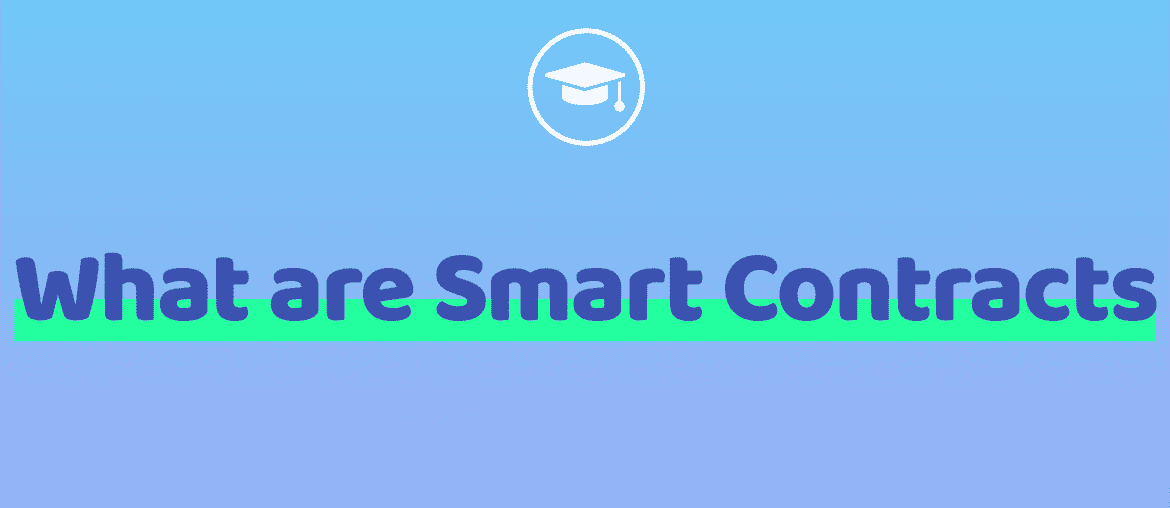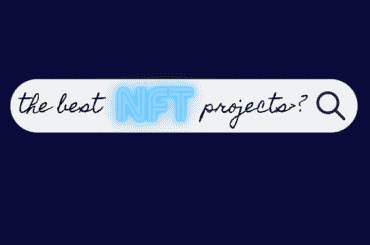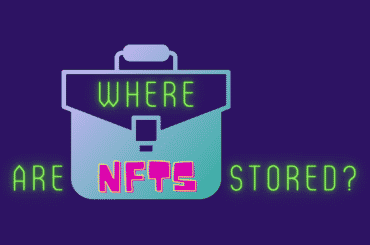In a Wild West of a universe that can be completely lawless and confusing, there still has to be some order. For workers to work, for business to run, for finances to be exchanged, somewhere along the line, there have to be rules.
While the crypto world in particular rings notes of independence from authority, rebels from the structure of government and banks, and the desire for no overpowering or all overseeing entity, yes; even these processes need some underlying rules.
Table of Contents
dApps and Crypto
The core value of the cryptocurrency system revolves around the concept of decentralized applications, more commonly called “dApps.” By decentralizing the system, added security, safety, anonymity, and distribution of power can occur.
To make that seemingly lawless process have some automation and consistency, the smart contract steps in to lend a hand.
Smart Contracts
People on the Internet are not about to wait for anything. The more evolved the world becomes, the more automation, the more reliant we become on it in life.
No one wants things to be difficult, tied up in red tape. They want things to be easy and quick. The smart contract is one of the tools that make this possible in the world of dApps.
There is a reason they are called “smart.” These programs take timing, guesswork, and frequent negotiations out of the equation, creating a smoother and, yes, smarter process along the way.
What Is a Smart Contract?
If you can automate something, it is beneficial to both buyers and sellers to do so. Automation makes a system easy to use, not to mention more fluid.
Smart contracts are programs stored on the blockchain. They are a set of predetermined conditions written into the blockchain. If those conditions are met, the program is scheduled to automatically run.
What Makes It “Smart” in the dApp World?
The benefit of the program in the blockchain is it is a copied and shared program across the peer-to-peer (P2P) network. Once adopted, each member of the blockchain receives a copy and thusly complies with the “rules” of that contract.
All parties involved understand the terms, preset, so that all are aware of the outcomes, too. If X occurs, Y will take place. If we all agree on what X and Y are, there is no need for any contradiction.
No intermediary is involved, and no time is wasted. Smart contracts allow for automation of process, meaning less delays on the blockchain.
The Blockchain Network
What is the blockchain network and how does it relate to the smart contract? The blockchain network is an overall infrastructure. This system will provide a ledger, tracking the movements on said network. It also houses the smart contracts themselves.
Smart contracts use the blockchain network to distribute and generate transactions. Those transactions are then distributed to every user on the network. That transaction, thusly, is transcribed onto ever user’s copy of the ledger.
Whether they are average end users or administrators, all will get a the predetermined outcome, preset by a smart contract.
A Group Effort
It is seldom that a user will go it alone completely on a blockchain network. Even a single entity or organization is rare.
Instead many groups or organizations may come together as a consortium to make a network together. That group will then make a set of policies, to which every member of the consortium must agree to ahead of time, when creating the network itself. This can include smart contracts, as they would contain predetermined X and Y factors (if X occurs, Y will result).
Should a change be required to these set policies, again the consortium members all must agree. This is typically called a modification policy. However, once a smart contract is in place, it cannot be changed.
Set in Stone
One of the keystones of the smart contract is the fact that they are unalterable. After a contract is devised between the parties, neither the user nor programmer can change the contract.
Some falsely believe that the mere existence of the smart contract being on the blockchain makes it true data. However, this is not the case.
A smart contract cannot work properly if the data isn’t true. That data may not be true, and still may exist on the blockchain.
Smart Contract Execution
The bottom line in terms of smart contracts is to get some outcome to occur. Smart contract execution is precisely what it sounds like it is: the carrying out of the contract’s predetermined and agreed upon outcome.
These executions (or results from the smart contract) can include thing such as:
- An exchange of money between parties
- Delivery of a services
- Unlocking protected content, such as those covered under digital rights management
- Data manipulation, such as changing a name on a title
The If/Then Statement
The execution of a smart contract relies on a rather simple theory. If X happens, then Y occurs. The statement is made to be clear, concise, and easy for all parties involved to understand.
Typically the smart contract is found to be without complication, and that is the overall goal. However, as most processes do, as the smart contract world becomes more and more detailed and complex, individuals on both sides, both programmer and user, fear that a smart contract may not capture each and every detail. This discrepancy may cause disagreements among parties or threats of very much unwanted legal issues.
The If/Then Vending Machine
An easy analogy of the If/Then statement is a vending machine. When you approach a vending machine, you have a general expectation. It doesn’t require you to be a computer scientist to figure it out.
You walk up to a machine. You insert coins (the “If” in our example). You press your buttons (the parameters have been met). You expect your candy bar to fall out (the “Then” in our example). If you put in coins and a code, you expect to get a candy bar.
It is an everyday occurrence. It is automated. It does not typically require any authority or oversight. IF you follow the “contract,” THEN you get what you expect, without negotiation, without question.
Written in Black and White
Many argue that a simple solution to the complexity problem is to create smart contracts in simple text formats. If the contract is text-based, where the parameters that trigger the smart contract’s execution are not only there in black and white, but also shows the program in visible text. It would mean actually populating the smart contract with text explaining the process.
For example, text would state, word-for-word, before your eyes something like “if the population reaches 15, than the program will begin.” It would state, in simple terms, the “If/Then Statement.”
Most smart contracts are written into computer code these days. But, many argue you should not have to be a computer scientist to figure out how one works.
How Smart Contracts Work
It may seem ironic that a word focused on a lack of authority and no overarching individual with “the power” operates on a detailed system of contracts. Ethereum is the most widely used network operating under the smart contract system. It was designed in 2013 specifically to create smart contracts, and is a popular smart contract platform.
While it is seldom used outside of Ethereum, it is a system its “believers” stand by. Many feel that the underlying structure of a smart contract will be the future way all online relationships and interactions work.
The Upside of the Ethereum and Smart Contracts
Besides its devote followers, the benefit of the Ethereum smart contracts are their restrictive language. These contracts allow for users to execute more than just the exchange of cryptocurrency. Those in the know call this ability “Turing-complete,” meaning it supports a broader set of computational instructions.
This creates a blockchain that is not just focused on moving crypto. Without limits, programmers can write just about any smart contract they can think of, for nearly any purpose. The only restriction is your imagination.
The Downside of Ethereum and Smart Contracts
Novel smart contracts have not yet been thoroughly tested. As a result, there is a higher chance of vulnerabilities both now and in the future. These are still new in the online network world, and that means there will be periods of trial an error still to come.
Ethereum, for example, has already seen the legal downside to smart contracts. The network has lost millions of dollars due to these vulnerabilities in smart contracts. The future of smart contracts is unclear.
Smart Contract Code
When it all comes down to it, what precisely a smart contract is, is a collection of code (its functions) and a series of smart contract data (its state). Those two components live at a specific address on the Ethereum blockchain.
Smart contracts are most often used as a type of Ethereum account. This means they have a balance included in the program, and they can send transactions over the network.
However because of the structure and design of a blockchain, the smart contract is not controlled by a user, instead they are deployed to the network and run as programmed.
User accounts can then interact with a smart contract by submitting transactions that execute a function defined on the smart contract. Smart contracts can define rules, just like the real-world paper contract. Because of the smart contract structure, those outcomes are then automatically enforced, via the code.
Smart contracts, because they are housed on the blockchain, cannot be deleted by default. Additionally, interactions with them are irreversible, meaning once you go interact, you cannot undo that interaction. An interaction with a smart contract, if meeting the requirements as set by the code, will automatically produce the intended results (execution), and there is no going back. An executed contract is done.
Is a Smart Contract Legally Binding?
The big question that remains slightly unclear is “are smart contracts legally binding?” The unclear part of this when it comes the law books is the lack of history. The historical background of the smart contract is still being written.
Not Enough History
The courts have not had a chance to take a deep look into the smart contract and how legally binding it could be. Just like its legal standing, the smart contract history is still being written. That said, smart contracts are legally binding if they follow contract law. So, yes, these smart contracts can be legally enforced if they follow contract law and its rules.
What are those rules? In the shortest definition, contract law requires there to be an offer, an acceptance, and a consideration.
Best of Both Worlds
A new combination is out there in the world of smart contracts. Some companies wishing to employ the smart contract but also are afraid they aren’t as legally binding as its “paper” counterpart, have been combining the two.
By adding both, in-depth legal provisions can be created, giving a company piece of mind. The company gets faster payments and more streamlined processes, while at the same time having a completely legally binding contract with standard agreements.
Human Error
Contracts in general can be tricky when it comes to the law, whether they are on paper on on the blockchain. No matter the writer or method in which they’re written (computer code or plain text), smart contracts may be stored on a blockchain technology, but are also prone to the same human error all contracts are.
Code can contain errors. Inputs, data, and executions can all have flaws. Imagine having an uneducated person create a legal contract for you. Would you hire someone that doesn’t create contracts for a living write one up for you? Similarly, it is ideal to have someone who makes smart contracts make yours, or minimally review it.
At the end of the day, while the crypto world is digital, it is still created by and managed by human beings. This means mistakes will happen. Just because it is recorded on the blockchain ledger, it does not mean that a smart contract is without error.
Automatically Automated
There is also a challenge in the very core of the smart contract’s own purpose. If operating under the If/Then theory, the execution of the smart contract may have already taken place. This means, instead of potentially withholding the promised outcome, it will be too late. The user will have the programmer’s work.
In theory, if written correctly and free of error, the very basis of the blockchain technology, made to be secure, SHOULD prevent that problem. The purpose of the dApp universe is to widely distribute the duties. No one person or entity has the power.
Accessible Also Means Nonprofessional
You shouldn’t have to be a legal scholar to create, interact, or operate and execute a smart contract. That is a double-edged sword. Typically speaking, with legally binding contracts, a lawyer (or actual legal scholar) will review the verbiage, offer suggestions to strengthen legal terminology, and advise you on whether signing is smart or not.
In the case of smart contracts, not necessarily being an expert means it is an accessible system. But, it also means non-professionals are creating them. They are inputting data and manually filling code. While that leaves room for error, it also means they are highly likely NOT a lawyer.
Overall Usefulness of the Smart Contract
In an age where much of the world is digital (and don’t get us started about pandemics and the impact they add to forcing everything into the online world), it is very likely the smart contract will continue to grow in popularity. Already, major corporations are seeking the use of smart contracts to cut costs and make things more streamlined, easing the pains of the supply chain.
Think of the large implications that the use of smart contracts can have. For example, let’s assume you own a yarn company. You could create a smart contract that says if the wool farm’s delivery of 100 pounds of wool comes into the factory by 4 p.m., release the payment to the farm.
Your wool farm will be happy. They’ve been paid on time, nearly as quickly as possible. You are happy. You have your wool, and can begin processing on time.
This smart contract eliminated the need for an invoice to be created. An accountant did not have to review the amounts or oversee the sending of the bill. No one at the farm had to bill your factory. Trees were saved. Hours of payroll were saved. The world is happy. Right?
Will Smart Contracts Take Human Jobs?
There is a long-running fear as technology amps up that it will take away the roles that humans play in the business world. Without that accountant, is there one less job on the market?
Streamlining the work load is and always has been a goal of most businesses. The use of technology like smart contracts may feel like it is cutting out some of the middle men involved. But is it?
Humans are still needed to oversee, write, encode, and operate the world of smart contracts. Studies have shown thus far that better tech does not necessarily drive down employment. On the contrary, many have found the use of robots and digitizing processes in business has provided higher salaries to employees as profits improve.
Much like its legal side, the future of smart contracts remains to be seen. Will it decrease the employment rate of people? Will robots take over the earth? Who really knows?





